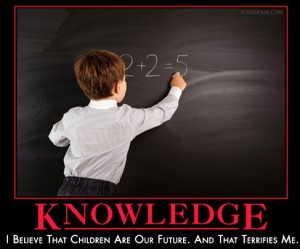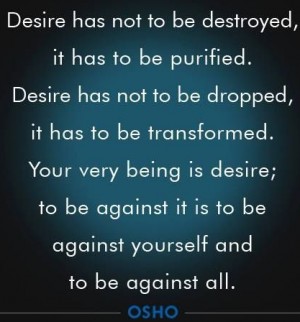 I am republishing this article, because distinguishing is the most missing thing for humans at this day and age.
I am republishing this article, because distinguishing is the most missing thing for humans at this day and age.
When I test people in the starting point measurement, the number that relates to this is the clarity score: how many words they can use accurately. I won’t explain why they are connected… just know that when you can’t hear and can’t see, your clarity is about the same as a blind person’s… with an ear muff…
It’s a rare opportunity to go from innocent infant to all-seeing adult, being able to observe it at the same time.
When I first did the Landmark Forum, ((
)) the koan of the session was: for you everything is the same as everything else, except that not always.
When you are an infant, for you everything is the same as everything else… no distinctions. No distinction between your body and the environment. You are just as ready to suck on your feet as you are ready to suck on someone else’s finger.
From time to time you’ll see something strange, like you reach out, as always, and your hands remain empty: the object you reach for is out of reach…
You learn the world, your world, slowly, and experientially. Through seeing, hearing, touching, tasting… like a baby.
 This is what I am talking about: going from innocent infant to all-seeing adult.
This is what I am talking about: going from innocent infant to all-seeing adult.
As I was looking through my notes on the mites, starting in January, this year, I saw the same process: everything is the same as everything else… to how it is now: tons of distinctions, all through experience, all through seeing, all mine, no one can take it away.
I learned what distinction was through a story about a woman whose car breaks down on the highway. She gets out of the car, and stands there, helplessly. She is a good looking woman, so a car pulls over, and the driver asks: experiencing trouble? Can I help?
The woman says yes, so the driver gets out of his car, and suggests that the woman pops the hood… “Pop the hood?” she asks.
The male driver shows her where the latch is… and she opens the hood.
The man stands in front of the stuff, all that dirty, gray, greasy stuff that the hood was covering.
He says: maybe it is your carburetor… he says. “Carburetor?” Echoes the woman, and the man points.
From that point on, there are two things under the hood for the woman: a carburetor and everything else.
The man leaves, not being able to help after all.
In the next half an hour five more cars pull up and one after the other show a “distinction” under the hood: the ventilator, the water bottle, the brake fluid bottle, whatever… not important for our purposes.
Distinctions can be inner and can be outer… we, here, mostly are talking about inner distinctions.
Distinctions bring stuff out of the invisible to the visible… from “everything-nothing” or undifferentiated mass… to the visible, to the clear, to clarity.
 Being able to see and recognize, accurately something means that you have a distinction. It doesn’t mean you can fix it, but you can recognize it… accurately.
Being able to see and recognize, accurately something means that you have a distinction. It doesn’t mean you can fix it, but you can recognize it… accurately.
We could say that intelligence is a very good measure of how well, how accurately, how fast one can get a distinction and see it everywhere every time it’s visible thereon.
Unfortunately, the word “can” is there, and most of us have an attitude issue: we think we already know everything, we think that what we see is what we think we see.
But you don’t see, really, you have already replaced what you see with what you think you see… and therein lies the mischief: you can’t actually see, you can’t actually hear, you are doomed to make mistakes, you are doomed to stay in the dark.
When I talk to you, I call it arrogance, and it’s a good word, but you misunderstand it too: you think arrogance is a haughty attitude, but it is simply the belief that you see what is, accurately, that you hear what is said, accurately, without ever looking again.
The mind, the ego, is running the show… If you were brought up made feel stupid or inferior, you are more likely to have this faulty sense of certainty, and this lack of looking again, testing, questioning your understanding.
This faulty sense of certainty keeps you stupid and stuck.
If knowing is too important to you, you’ll settle for the first impression that is bound to be wrong.
Your job is to keep it fluid, to make no decisions, to use language that keeps your judgment delayed: it seems… it feels like… it appears…
Had I stayed with my first impression about the mites, we would not be celebrating a full blown solution today.
It’s beem a long process, it’s been painful, but in the end it seems to be accurate…
Did you see that I didn’t close it down, even now? Who knows what additional distinctions may come up that I would not see, had I said: It’s accurate, it’s the truth.
Read the original article: You can’t see and you don’t know it. You can’t hear and you don’t know it